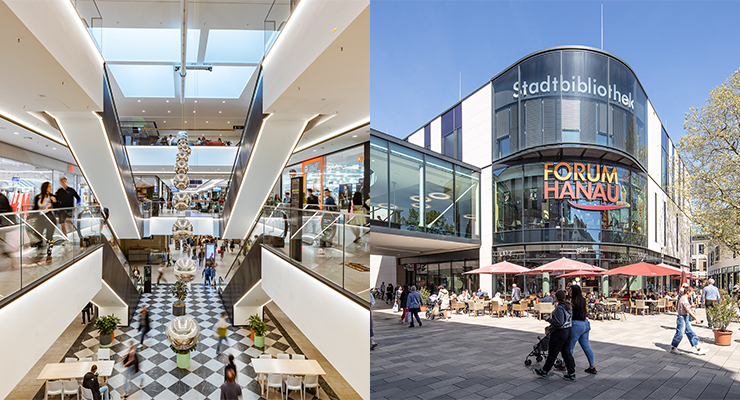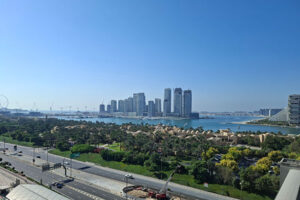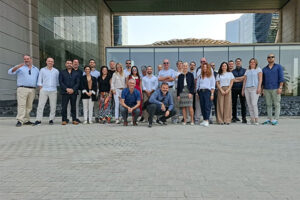Traditional “shopping” has become a leisure activity focusing on fun, experience, and entertainment. In order for a center to remain competitive and for visitors to repeatedly frequent it, it has to provide services beyond the retail offering. A wide variety of uses must be harmoniously combined under one roof. Gastronomy, leisure and entertainment facilities, offices, health services, municipal facilities, and even apartments or hotels are playing an increasingly important role. This diverse offering attracts more people and helps diversify and spread the risk of rental income.
This development has been happening for more than 30 years through the conceptualization of neighborhoods or “cities within cities”, which have successfully established themselves in major cities worldwide over the years. HBB has been at the forefront of developing such projects in recent years, providing such analyses and implementations to third-party investors and developers.
One example of this development in German-speaking countries is the FORUM Schwanthalerhöhe in Munich. Developed by HBB, the center faced many hurdles right from the start: a delayed opening due to the general contractor’s failure to complete the project on time. Shortly after the opening, the onset of the pandemic made market entry even more difficult. In addition, major construction sites around the building hindered visibility and access during the build-out phase. The fundamentally changed framework conditions of the tenant market and customer purchasing behavior led to the decision that a “restructuring of the restructuring” was necessary. The FORUM is being repositioned as a mixed-use or unique venue featuring an extensive entertainment and leisure component.
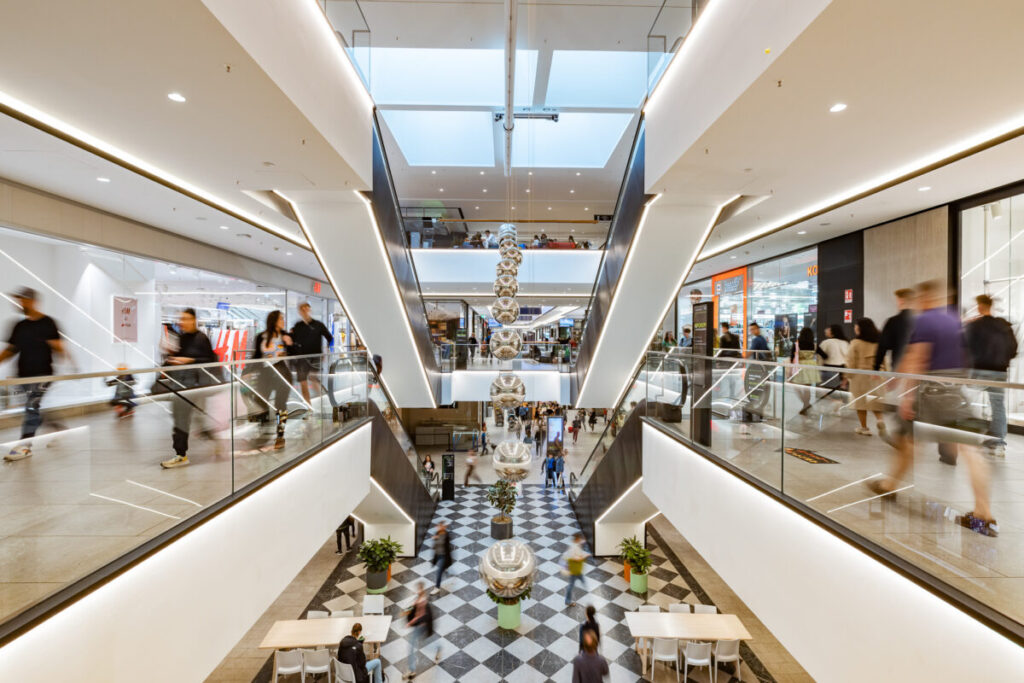
Beyond Changed Utilization Structures
However, the road to a thriving shopping center requires more than just a comprehensive utilization structure. A contemporary design that serves the needs of visitors is crucial. Thus, the mall, i.e., the “public space” within a shopping center, must be attractively designed to become a proper third place. In addition, a sustainable and comprehensive approach that takes environmental, social, and other aspects into consideration is required nowadays. Repositioning shopping centers with ESG criteria in mind provides an opportunity to create sustainable values. Such values range from environmentally friendly architectural concepts promoting visitor well-being to resource-saving retail and product concepts to social initiatives and campaigns. The path to repositioning a shopping center according to ESG criteria is complex, but it simultaneously opens up the possibility of achieving positive changes at all levels. In addition, compliance with ESG criteria has become more relevant to investors.
This requires a profound understanding of each project’s specific challenges and opportunities and the determination to translate those values into action. Therefore, HBB’s approach is based on holistic analysis that is aimed at understanding a site’s unique needs and developing a customized “unique place strategy”. That includes careful tenant selection and the creation of a sustainable and engaging environment, and does not follow a standardized approach. We aspire to bring our extensive “shopping center revitalization” expertise into symbiosis with ESG criteria. In doing so, we are setting a high standard for quality and are pursuing innovative approaches to ensure that shopping centers become modern, sustainable, and socially integrated living spaces. HBB’s goal is to implement projects that are forward-looking and sustainable. This is a process that extends across the entire portfolio. Thus, further repositioning of shopping centers is due to begin – with ESG criteria in mind.
Certifying Properties
HBB’s commitment extends to all phases of a real estate project – from planning and implementation to operation and management. When certifying our properties, we rely on renowned standards, such as those of the German Sustainable Building Council (DGNB) and the British Building Research Establishment Environmental Assessment Method (BREEAM). In addition, we are currently in intensive exchange with WELL, whose certification prioritizes employee health and safety, maximizes property value, and optimizes corporate social performance. We are presently recertifying Forum Hanau and an office property in Dreieich.
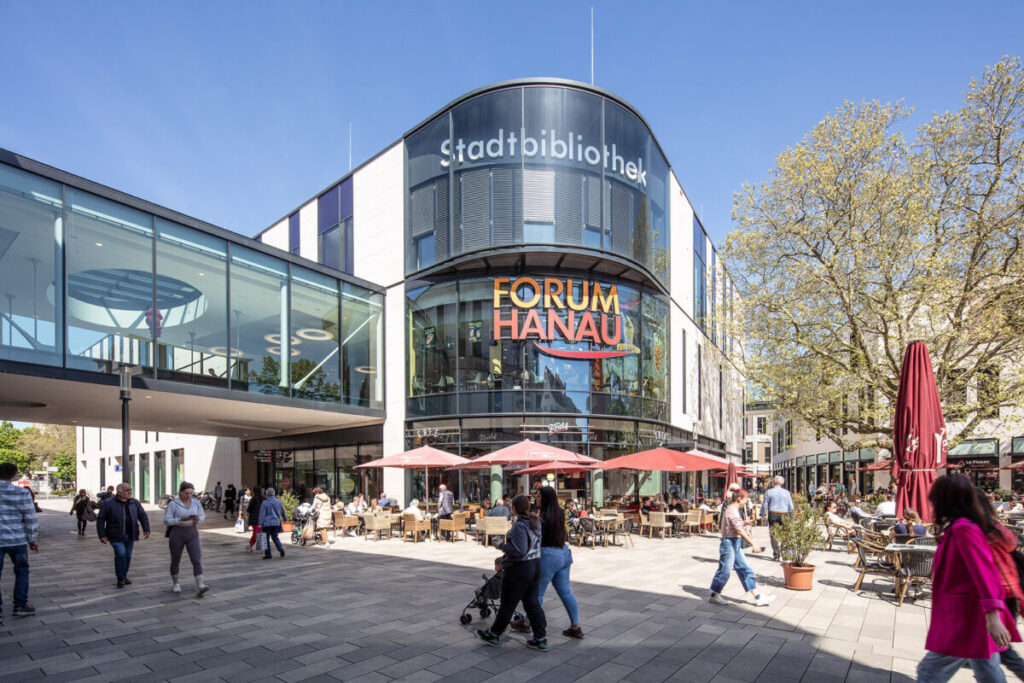
One example of our implementation of ESG measures is the smart metering method used at Forum Hanau. We have chosen an innovative approach to increase energy efficiency and minimize consumption, which is achieved through this method. Using smart metering technologies, Forum Hanau can monitor energy consumption throughout the building complex in real-time. This continuous data collection and analysis is extremely valuable as it helps to track and understand energy consumption accurately. Based on this information and with the help of AI support, center management can take targeted steps to reduce energy consumption further and increase energy efficiency.
Permanent consumption data monitoring enables HBB to identify trends and patterns that indicate opportunities for consumption reduction. That will enable Forum Hanau to reduce costs and contribute to environmental protection. To obtain a clear overview of the ecological status of our properties, we became a member of initiatives such as ECORE at an early stage. In addition, we are a member of QUANTREFY. This platform correlates various assessment models, such as GRESB, and offers recommendations for action to improve the environmental score. With the help of these initiatives, we can sustainably optimize our real estate year after year. We are also systematically driving forward digitalization at our headquarters and center offices. That affects our work platforms and includes a modern data management system, internal project management, and a digital bookkeeping and accounting system. Such steps allow us to work in an almost paperless manner, and they also contribute to the reduced consumption of resources.
